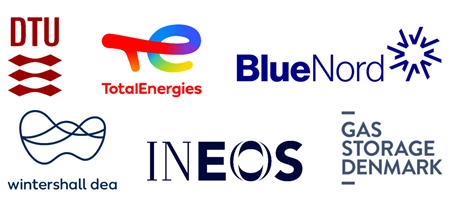Background
The geological storage of carbon dioxide (CO2) is a pivotal technology in the portfolio of solutions aimed at mitigating climate change by reducing greenhouse gas emissions. However, the CO2 captured from industrial processes or directly from the atmosphere often contains impurities (denoted as X, which could be nitrogen, argon, methane, or other gases), and interacts with various in-situ fluids like brine and hydrocarbons when injected into geological formations. The phase behavior of these CO2+X mixtures is crucial for the efficient and safe storage of CO2, influencing factors such as the storage capacity of geological sites, the integrity of injection processes, and the long-term stability of stored CO2.
Despite extensive research into CO2 and its mixtures, the specific conditions encountered in geological storage—such as varying pressures, temperatures, and compositions—present unique challenges. There exists a significant amount of data and several models for CO2 systems, but these are often focused on pure CO2 or simple mixtures, not fully capturing the complexity of real-world CO2 streams with multiple impurities or the interaction with reservoir fluids. Furthermore, the integration of high-fidelity models into practical tools for simulation and analysis of CO2 storage scenarios remains limited. This gap hampers the accurate assessment of potential risks like pressure build-up, leakage, or chemical interactions within the storage site, which are vital for both operational safety and regulatory compliance. The current state of the art lacks a unified approach to systematically address these issues across different types of storage environments, from depleted oil and gas reservoirs to saline aquifers.
Objectives
- Data and Model Synthesis: Compile and assess existing data and models on CO2+X phase behavior.
- Experimental Insights: Gather essential experimental data on CO2 mixtures relevant to geological storage.
- Model Enhancement: Develop improved models for CO2+X systems to better predict phase behavior.
- Simulation Integration: Integrate these models into simulations for real-world CO2 storage scenarios.
Expected Results
- Improved Risk Assessment: Tools and methodologies for better managing CO2 storage risks.
- Standards Development: Establish industry standards for CO2 mixture behavior in storage settings.
- Operational Efficiency: Enhance storage safety and capacity estimates, aiding in meeting climate goals.
- Global Applicability: Provide insights that can be applied internationally, promoting wider CCS adoption.
Project partners:
